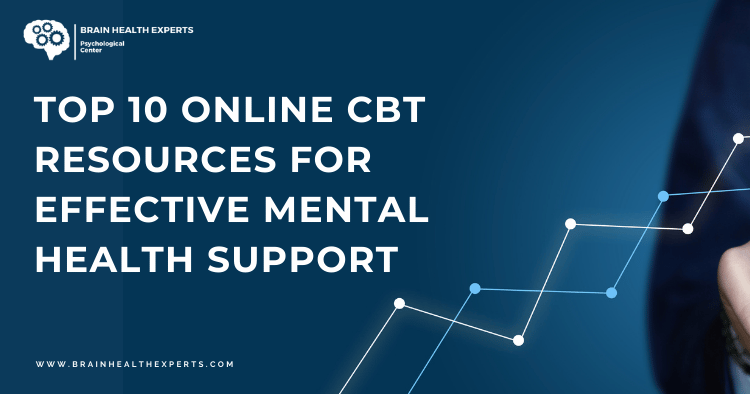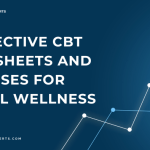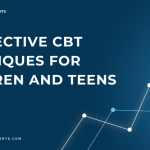Table of Contents
- Introduction to Cognitive Behavioral Therapy (CBT)
- Why Choose Online CBT Resources?
- 1. BetterHelp
- 2. Talkspace
- 3. Moodfit
- 4. CBT Thought Diary
- 5. Woebot
- 6. MoodTools
- 7. MyTherapy
- 8. Headspace
- 9. Mindfulness Coach
- 10. The CBT Toolbox
- Conclusion
- FAQs
Introduction to Cognitive Behavioral Therapy (CBT)
Cognitive Behavioral Therapy (CBT) is a widely recognized and effective treatment for various mental health issues, including anxiety, depression, and stress-related disorders. It focuses on identifying and changing negative thought patterns and behaviors that contribute to emotional distress. With the rise of technology, many CBT resources have moved online, making them more accessible than ever. This article will guide you through the top 10 online CBT resources available today, as well as highlight some recent trends and studies that underscore the growing importance of positive thinking and resilience in mental health.
Also, you can enhance your understanding of how positive thinking transforms your daily life by checking out our article on 10 Ways Positive Thinking Transforms Your Daily Life.
Why Choose Online CBT Resources?
Online CBT resources offer the convenience of therapy at your fingertips. Whether you’re at home, commuting, or on vacation, you can access mental health support whenever you need it. Here are a few reasons why online resources are worth considering:
- Flexibility: Access materials and support at your own pace.
- Affordability: Many online platforms offer cost-effective options compared to traditional therapy.
- Anonymity: Feel more comfortable seeking help in a private setting.
- Variety: A wide range of resources, including apps, websites, and virtual therapy sessions.
Additionally, research indicates that positivity can significantly enhance mental resilience. For more insights into this topic, visit our page on 10 Ways Positive Thinking Boosts Resilience in Tough Times.
1. BetterHelp
BetterHelp is one of the largest online therapy platforms, connecting users with licensed therapists via messaging, video, or phone sessions. The platform provides tailored CBT approaches based on individual needs.
- Pros: Diverse therapist selection, flexible communication options, and subscription-based pricing.
- Cons: Requires internet access, and some users may prefer face-to-face interactions.
2. Talkspace
Talkspace offers similar services to BetterHelp but has a unique feature: users can communicate with their therapist through text, audio, or video messages. This platform is excellent for those who may feel anxious about live sessions.
- Pros: Regular check-ins and a user-friendly app.
- Cons: Some users find the lack of real-time sessions limiting.
3. Moodfit
Moodfit is a mobile app designed to support mental well-being through CBT techniques. It features mood tracking, goal-setting, and mindfulness exercises to help users develop healthier thought patterns.
- Pros: Interactive tools for self-improvement.
- Cons: Less focus on therapy with a licensed professional.
4. CBT Thought Diary
CBT Thought Diary is an app that helps users record their thoughts and feelings, analyze patterns, and challenge negative beliefs. The app is user-friendly and provides helpful prompts.
- Pros: Great for tracking thoughts over time.
- Cons: Limited features compared to full therapy services.
5. Woebot
Woebot is an AI-powered chatbot designed to provide mental health support through CBT principles. Users can chat with Woebot to explore their thoughts and feelings while learning coping strategies.
- Pros: 24/7 availability and engaging conversational style.
- Cons: Lacks the depth of human interaction.
6. MoodTools
MoodTools is a comprehensive app designed for those struggling with depression. It includes a thought diary, activity planner, and a variety of resources to help users combat negative feelings and develop healthier habits.
- Pros: Holistic approach to managing mood.
- Cons: May not be sufficient for severe mental health issues.
7. MyTherapy
MyTherapy not only helps users track their mood but also reminds them to take medications on time. This app integrates CBT techniques and encourages users to set goals and track their progress.
- Pros: Medication management combined with mental health support.
- Cons: Primarily focused on medication adherence.
8. Headspace
Headspace is widely known for its meditation resources but also incorporates CBT techniques into its mental health offerings. The app provides guided meditations, mindfulness exercises, and educational content about mental health.
- Pros: User-friendly design and a vast library of content.
- Cons: Limited CBT-focused interventions compared to dedicated platforms.
9. Mindfulness Coach
Mindfulness Coach is an app developed by the U.S. Department of Veterans Affairs. It teaches mindfulness skills that complement CBT techniques, helping users manage stress and anxiety effectively.
- Pros: Evidence-based practices and free access.
- Cons: Primarily geared towards veterans, though useful for anyone.
10. The CBT Toolbox
The CBT Toolbox is a resource-rich website offering worksheets, exercises, and tools for individuals and therapists. It’s a great option for self-guided CBT work or for therapists looking to enhance their practice.
- Pros: Extensive resources and materials.
- Cons: May require some prior knowledge of CBT principles.
Conclusion
The rise of online CBT resources has transformed the way individuals seek mental health support. With a variety of platforms available, you can choose the one that best fits your needs. Whether you prefer a virtual therapist, an app for self-help, or a mix of both, these resources can provide effective tools for improving your mental health.
For additional insights into how positive thinking can enhance your emotional well-being, explore our articles on 10 Powerful Affirmations to Boost Mental Health Today and 10 Ways Positive Thinking Boosts Emotional Well-Being.
FAQs
Q: Is online CBT as effective as in-person therapy?
A: Many studies suggest that online CBT can be just as effective as traditional face-to-face therapy, particularly for anxiety and depression. For more on the effectiveness of positive thinking techniques, see 10 Groundbreaking Studies on the Power of Positive Thinking.
Q: Do I need a therapist to use these resources?
A: While many platforms offer access to licensed therapists, there are also self-help apps that do not require professional intervention.
Q: How can I choose the right online CBT resource for me?
A: Consider your specific needs—whether you prefer guided therapy, self-help tools, or a combination of both. Reading reviews and exploring free trials can also help you make an informed decision.
To further enhance your mental wellness, consider exploring our guide on 10 Tips to Overcome Negative Thought Patterns Today.





